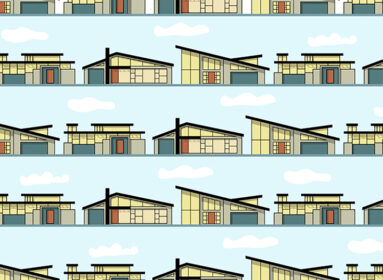By Cindy Mindell
STAMFORD – For decades, Connecticut’s Jewish communities have fostered person-to-person relationships with Israel and its inhabitants. Paired with the Afula-Gilboa region, Connecticut Jewish Federations in the Southern New England Consortium (SNEC) sponsor the Israeli Young Emissary program. There are Israeli emissaries-in-residence at the Stamford JCC and the Bi-Cultural Day School in Stamford. Jewish organizations and congregations host speakers and cultural events and organize regular missions to Israel.
Among the longest-running cultural-exchange programs in Jewish Connecticut is Tzahal Shalom, organized by Friends of the Israel Defense Forces (FIDF). (Tzahal is the Hebrew acronym for Tzva Haganah L’Yisrael, the Israel Defense Forces.) The program operates in only two U.S. communities, bringing seven IDF combat officers to Stamford every April and to northern Westchester, N.Y. every October.
FIDF was established in 1981 by a group of Holocaust survivors to provide for the well-being of IDF soldiers and the families of fallen soldiers. Headquartered in New York City, the not-for-profit corporation operates 16 regional offices in the U.S. and Panama. Tzahal Shalom is one of the FIDF initiatives that bring hundreds of IDF soldiers to the U.S. every year to interact with Jewish communities. The program is funded entirely by the participating communities. Hosted by local families, the soldiers spend a week interacting with the public, at synagogues, high schools and colleges, parlor meetings, social events, and community celebrations.
The Stamford program is in its 35th year. Before Tzahal Shalom, the JCC would organize annual visits of wounded IDF veterans to the community. Once FIDF was launched, the JCC collaborated with the organization to host high-ranking active-duty IDF officers.
“The goal of the JCC Tzahal Shalom program is to deepen mutual understanding and strengthen the unity of the Jewish people,” says Nancy Schiffman, associate executive director of the JCC. “The value of the program lies in each officer’s ability to connect with those they meet, person to person, as they become the face of Israel. It creates a bridge between the two countries and a connection that either was not there before or is strengthened by their interactions. Many of the students they come in contact with know very little about Israel or only what they hear in the headlines. This is a way to create a positive connection that we hope will stay with them.”
Tzahal Shalom soldiers go through a comprehensive selection process, with training from the IDF and FIDF, says Deborah Trimble, director of the FIDF Westchester/Connecticut chapter. “We typically welcome some of the best soldiers the IDF has to offer,” she says. “They’re usually playing some critical roles and their commanders let them come to the U.S. for a significant time away from their duties, as this is considered important enough to be part of their service.”
The program’s objectives are two-fold, Trimble says: to share with the host community information about the IDF and its significance in creating Israeli society; and to clarify the IDF’s daily operations to those who may hold misconceptions about the role of Israel’s military or who don’t understand it in the context of the challenges of today’s world.
Among this year’s IDF participants are Lt. Ella Lasry, 22, and Capt. Avishai Bitton, 26.
“I heard a lot about FIDF; in my company right now, we have a club, a gym, and a synagogue funded by FIDF,” says Lasry, company commander of an “Ivory” missile defense battery. “I wanted to give back and see the people who are doing all that stuff for us. I want them to know that we really appreciate the help they give us. Soldiers are working really hard and when someone does something nice for us, it means the world. Also, I want them to know about the IDF from the communal side: it brings everyone in Israel together and gives equal opportunity to all soldiers. FIDF helps soldiers with material and financial needs; from our end, we help by teaching the values of Israeli citizenship and creating a sense of togetherness and giving back to society.”
Bitton is an operations officer of a counterterrorism group. “My main objective is to make sure that people understand how important FIDF is as part of the IDF, and you can’t separate the two,” he says. “They’re not just an organization that helps with buildings and programs, but they are one huge welfare part of IDF life and of my soldiers’ lives. The interest of the IDF and FIDF is the same: FIDF helps the IDF and the IDF helps FIDF. Together, we help all Jews in the world.”
Bitton also hopes to hear and dispel myths and misconceptions about the IDF.
The officers find value in FIDF’s work that goes far beyond the material assistance the organization provides. “There is a sensation in the IDF, mostly in big operations and escalations, that we are not loved by the world sometimes,” Lasry says. “This is something we want to talk about in the community: the IDF is investing a lot of resources in making our weapons more accurate. We have to defend Israeli citizens, but we really try not to hurt innocent people. Even though we see FIDF involvement in Israel, you don’t realize how much love you get from here until you meet the people. That gives me strength, and then I can pass that on to my soldiers and fellow officers.”
Seven IDF soldiers are in Stamford until Apr. 28. For a full program of Tzahal Shalom in Stamford: www.stamfordjcc.org








 Southern New England Jewish Ledger
Southern New England Jewish Ledger









